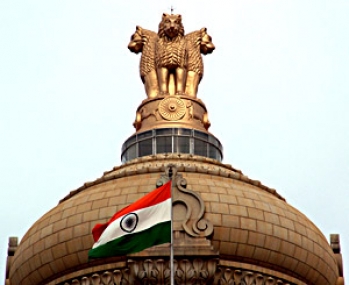Issues Around Appointments in Higher Civil Services
Executive forms one of the constitutional machinery which is one among the three pillars of democracy. The constitution of India provides permanence in tenure which is equivalent to the judiciary in the country. Judiciary which forms the basic part of the constitution so is the civil services an integral part of executive. The removal of foreign secretaries and home secretaries before the completion of their tenure and various such other removals after the change in the government at the centre leave several questions unanswered. How and on what basis removal from higher civil services is carried out? What is the procedure of appointment to these hierarchy? What rules and regulations guides such removal and appointments?
Prerogative of government
The appointment, transfer, and removal of civil servants are prerogative of government. There are elaborate procedures and for their dismissal or termination from services, but such appointments are made so handy to the government that if it feels that the performance of the incumbent is below the expectation it had the right to change. And in most of the cases the reasons for such removals are not disclosed.
Mechanism of managing the higher civil services
The appointment takes place under the mechanism called as central staffing scheme, which provides broad guidelines for the appointing officers to the civil posts. A pool of IAS officers is shortlisted on the basis of annual performance report every year and the central govt. chooses the officers to the vacant post. In the scheme there is no fixed term of appointment above the joint secretary level as most of them reached to this level at the retiring age. However a fixed tenure of 4 years to the cabinet secretary is questionable in the row? The fixed tenure to the director CBI and IB against no such tenure to DG- BSF and CRPF. The important point is in the present system there is an arbitrary procedure of appointments and removal and which provides no basis of such act. The higher civil services becomes merely a political appointment with a permanence rather than serving real public interest.
The process known as empanelment, which is process of shortlisting of officers for the pool is itself flawed, because it considers only the annual performance appraisal report rather than any other qualitative criteria.
Almost every officer is credited with outstanding ratings, almost all the found fit to be secretary. Civil servants are not only provided guaranteed permanence in their job, but also assured of highest possible appointments in the respective services. This becomes a trend now to remove the officers from the crucial posts without affecting their post retirement benefits so that the officer himself do not question the procedure.
Several recommendations in the past
Y K Algah committee raised several questions regarding civil services reforms including- civil service performance system, reforming the annual confidential report process, mobility of services and lateral entry of the professional, stability of tenure, and selection to the senior administrative grade and higher bureaucracy.
Sixth pay commission reported that there is a pressing need to ensure the selection procedure that is open and transparent and equal chances to all the eligible officers. To achieve this all the higher administrative and senior administrative posts should be filled through an open selection process conducted by an independent agency. And the function of the independent agency should be governed by the UPSC, by involving the experts form relevant fields.
It is the government, which should take essential measures to streamline the appointments by framing the rules and procedure in order to get best out of these civil servants to perform for the greater public good.


